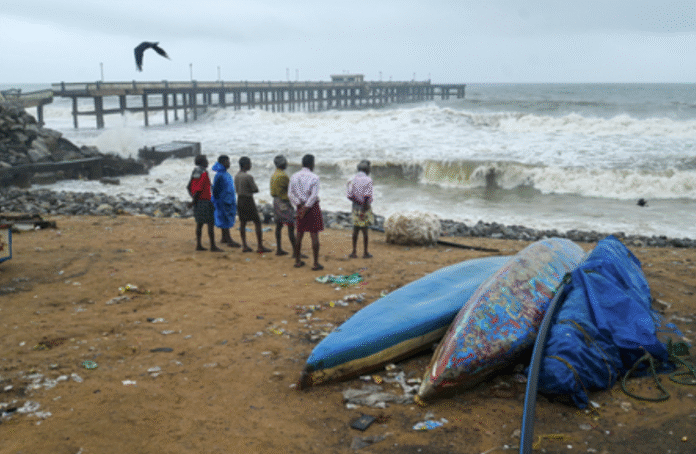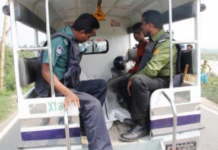CHENNAI– The Sri Lankan Navy arrested four Indian fishermen from Tamil Nadu’s Rameswaram early Tuesday morning, accusing them of crossing the International Maritime Boundary Line (IMBL) and fishing illegally in Sri Lankan territorial waters.
The fishermen had set out from the Rameswaram fishing harbor in motorized boats for their routine deep-sea fishing activities when they were intercepted mid-sea by Sri Lankan naval personnel on patrol, according to local sources.
The Sri Lankan Navy alleges that the fishermen breached the IMBL and were conducting unauthorized fishing operations within Sri Lanka’s maritime zone. In addition to detaining the fishermen, the Navy also seized their motorized fishing boat.
The arrested fishermen have been taken to the Mannar Naval Camp in Sri Lanka for further questioning, reports said.
This latest incident is part of a recurring pattern, as Sri Lankan authorities have increased enforcement against Indian fishermen allegedly entering their waters. Fishermen from Tamil Nadu claim that in many such cases, not only are they arrested, but their boats are confiscated and later declared as state property by the Sri Lankan government.
The ongoing arrests have raised alarm among coastal communities in Tamil Nadu, particularly in districts like Ramanathapuram, where deep-sea fishing is a primary source of income.
Fishermen’s associations have strongly condemned the Sri Lankan Navy’s actions and have urged both the Indian central government and the Tamil Nadu state government to act swiftly.
“There must be diplomatic efforts to resolve this long-standing issue. These repeated arrests are putting our lives and livelihoods at risk,” said John Thomas, a representative of a local fishermen’s union.
As the frequency of arrests increases, fishing communities continue to live under constant fear, while diplomatic talks between India and Sri Lanka have yet to yield a long-term resolution. The call for decisive action to ensure the safety of Indian fishermen operating near the IMBL is growing increasingly urgent. (Source: IANS)













